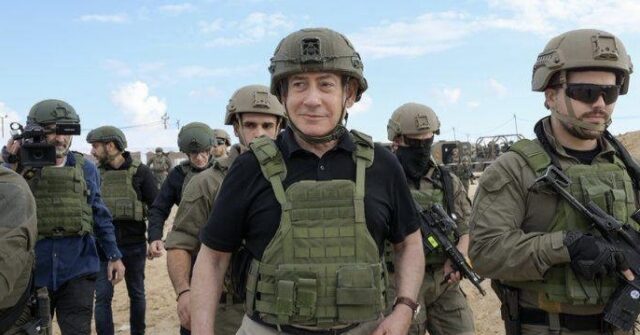Israeli Prime Minister Benjamin Netanyahu’s unexpected visit to central Gaza on Tuesday aimed to convey a strong message: that Hamas will not regain power in the region and that there will be severe consequences for any harm inflicted on hostages. This visit comes amid growing tensions and military engagements, with particular attention diverted towards Lebanon, where ongoing conflicts between Israel and Hezbollah have escalated since October 2023. Netanyahu’s presence in Gaza signals a determined stance against Hamas and underscores Israel’s commitment to ensuring the safety of its citizens and the return of its hostages.
During his tour of the Netzarim Corridor, an area of strategic significance that has been under control of the Israel Defense Forces (IDF), Netanyahu emphasized the IDF’s accomplishments in degrading Hamas’s military capabilities. He articulated that the military is now transitioning towards dismantling the governing capabilities of Hamas, firmly stating that the organization “will not rule in Gaza.” This position is indicative of Israel’s ongoing military strategy, which prioritizes the elimination of not just the military strength of Hamas but also its political influence within the Palestinian territory.
Accompanied by key defense officials, including Defense Minister Israel Katz and IDF chief Lt. Gen. Herzi Halevi, Netanyahu reinforced the importance of the ongoing military operations and their effectiveness. In his remarks, he acknowledged the sacrifices made by IDF soldiers, particularly reservists, whose contributions have been pivotal in the current conflict. By highlighting these efforts, Netanyahu aims to bolster public support and national morale, reinforcing the image of a united front against a common adversary.
A critical aspect of Netanyahu’s visit centered around hostages taken by Hamas, with current estimates suggesting that 101 Israelis remain in captivity, with two-thirds believed to be alive. Netanyahu reiterated his commitment to securing their release and unveiled a monetary incentive—$5 million for information leading to the recovery of a hostage. This dual approach of threatening retribution against those who harm Israeli citizens while offering rewards for cooperation reflects a calculated strategy to leverage both fear and incentives in a complex conflict environment.
In his address, Netanyahu firmly warned those holding hostages, asserting that any harm inflicted on them would incur significant retaliatory measures. His language was direct and confrontational, reinforcing a message of accountability and determination. Additionally, he emphasized a safe passage for those willing to turn over hostages, suggesting a semblance of negotiation within a heavily militarized context. This approach highlights the duality of the Israeli stance: pursuing military objectives while also seeking to navigate the realities of hostage situations delicately.
The significance of Netanyahu’s statements and actions in Gaza reverberates beyond immediate military objectives, as they encapsulate the broader dynamics of the Israeli-Palestinian conflict and the shifting priorities within regional geopolitics. The backdrop of ongoing tensions between Israel and Hezbollah in Lebanon adds complexity to the situation, indicating that conflict in one region influences perceptions and strategies in others. As Israel continues to grapple with both external threats and the internal ramifications of its military operations, Netanyahu’s message remains clear: Hamas will not reign in Gaza, and the protection of Israeli lives, including hostages, remains paramount in the ongoing struggle for security and stability in the region.

